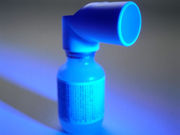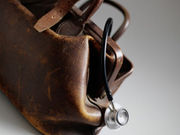CDC: Sharp Increase in U.S. Babies Born With Syphilis
Of infected babies born in 2014, 15 percent of mothers were never tested for syphilis
CDC: Autism Rate Up Post Survey Method Changes
The number differs based on new questions parents were asked about their children
Substantial Increase in Costs for Uncontrolled Asthma
Substantial fraction of asthma patients symptomatically uncontrolled
Newborn Probiotic Use Tied to Lower Risk of Type 1 Diabetes
But association was only found in those with the highest genetic risk of the disease
Prenatal PFOA Exposure Linked to Excess Weight in Children
However, more research needs to be done to show cause-and-effect
CDC: Adult Obesity Still Rising in U.S., Youth Rates Hold Steady
Per analysis of weight trends since 1999
Insulin Pumps Offer Better HbA1c Control for Children With T1DM
Fewer ethnic minorities and boys received pump therapy in study
Blood Test Has Potential for Detecting Concussion in Children
Could help reduce number of CT scans and associated radiation exposure
ACP Issues Guidance on ‘Concierge’ Practices
Growth of DPCPs fueled by physicians' frustration; may exacerbate disparities in health care
Web-Based CBT Program Cuts Suicidal Ideation in Interns
Web-based cognitive behavioral therapy program reduces likelihood of endorsing suicidal ideation



















